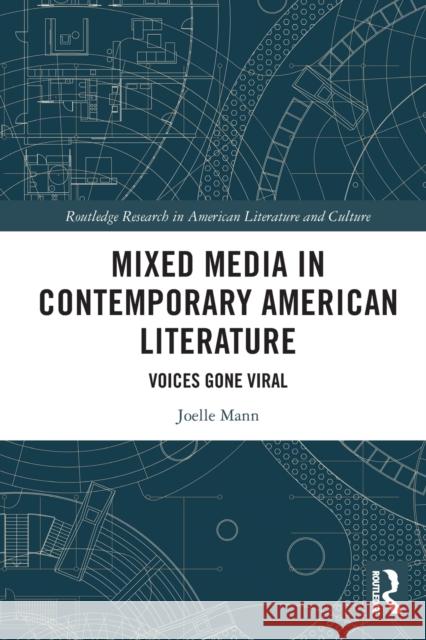Mixed Media in Contemporary American Literature: Voices Gone Viral » książka
Mixed Media in Contemporary American Literature: Voices Gone Viral
ISBN-13: 9781032028811 / Angielski
Mixed Media in Contemporary American Literature: Voices Gone Viral
ISBN-13: 9781032028811 / Angielski
(netto: 198,31 VAT: 5%)
Najniższa cena z 30 dni: 196,40 zł
ok. 16-18 dni roboczych.
Darmowa dostawa!
Mixed Media in Contemporary American Literature: Voices Gone Viral investigates the formation and formulation of the contemporary novel through a historical analysis of voice studies and media studies. After situating research through voices of nineteenth- and twentieth-century American literature, this book examines the expressions of a multi-media vocality, examining the interactions among cultural polemics, aesthetic forms, and changing media in the twenty-first century. The novel studies shown here trace the ways in which the viral aesthetics of the contemporary novel move language out of context, recontextualizing human testimony by galvanizing mixed media forms that shape contemporary literature in our age of networks. Through readings of American authors such as Claudia Rankine, David Foster Wallace, Jennifer Egan, Junot Díaz, Michael Chabon, Joseph O’Neill, Michael Cunningham, and Colum McCann, the book considers how voice acts as a site where identities combine, conform, and are questioned relationally. By listening to and tracing the spoken and unspoken voices of the novel, the author identifies a politics of listening and speaking in our mediated, informational society.
Mixed Media in Contemporary American Literature: Voices Gone Viral investigates the formation and formulation of the contemporary novel through a historical analysis of voice studies and media studies. After situating research through voices of nineteenth- and twentieth-century American literature, this book examines the expressions of a multi-media vocality, examining the interactions among cultural polemics, aesthetic forms, and changing media in the twenty-first century. The novel studies shown here trace the ways in which the viral aesthetics of the contemporary novel move language out of context, recontextualizing human testimony by galvanizing mixed media forms that shape contemporary literature in our age of networks. Through readings of American authors such as Claudia Rankine, David Foster Wallace, Jennifer Egan, Junot Díaz, Michael Chabon, Joseph O’Neill, Michael Cunningham, and Colum McCann, the book considers how voice acts as a site where identities combine, conform, and are questioned relationally. By listening to and tracing the spoken and unspoken voices of the novel, the author identifies a politics of listening and speaking in our mediated, informational society.











